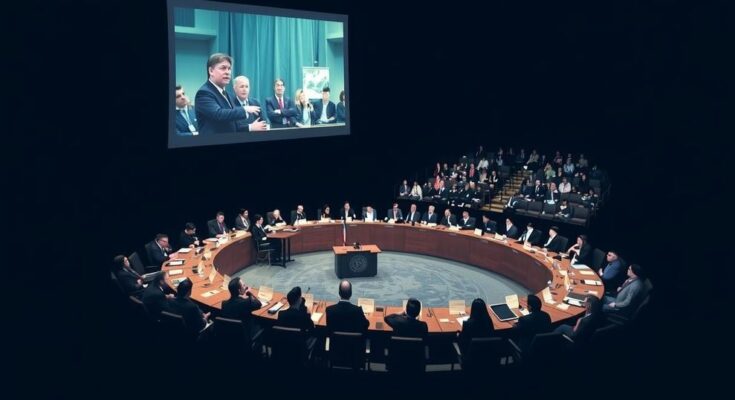COP is an annual international conference on climate change attended by 198 nations, focusing on net-zero emissions and climate targets according to the Paris Agreement. Despite its significance, COP has consistently fallen short of imparting accountability, realizing current commitments, and has faced leadership scandals that further diminish its credibility. Experts warn that without substantial reforms and enforcement mechanisms, COP risks becoming ineffectual in addressing the climate crisis, leading to skepticism regarding future conferences.
At the recent COP26 meeting in Glasgow, Sir David Attenborough posed a poignant question: “Is this how our story is due to end?” His remarks encapsulate the growing concern over humanity’s short-sightedness in addressing climate change. As COP29 convenes in Baku, Azerbaijan, skepticism looms due to the lack of substantial outcomes from the previous conferences. Despite being crucial in shaping global climate policy, COP has repeatedly fallen short in holding member states accountable for their climate pledges. The Conference of Parties (COP) serves as an annual gathering for 198 member nations to discuss strategies for mitigating climate change. Traditionally lasting five days, these conferences culminate in commitments aimed at achieving net-zero emissions and adhering to the climate targets established in the Paris Agreement. Nevertheless, despite the significant potential of these discussions, the track record of COP reveals a disconcerting pattern of inaction and unfulfilled promises. Accountability remains a pivotal issue at COP. Nations make commitments—such as Greece’s plan to close its last coal mine by 2025—yet these pledges lack legal enforceability. Major carbon emitters, including China, the United States, India, and Russia, have not made meaningful commitments in recent years, raising questions about the efficacy of COP in influencing the behaviors of countries responsible for over half of global carbon emissions. Climate policy expert Stephen Aykut emphasized, “[COP] must be used as a means of pressure,” underscoring the need for COP to demand compliance with commitments made. The existing framework of the Paris Agreement requires countries to submit their Nationally Determined Contributions (NDCs) every five years, detailing measures to achieve climate targets. However, many nations are failing to meet these commitments, as evidenced by a mere ten countries completing their Biennial Transparency Reports (BTR) ahead of the upcoming deadline in December 2024. A study by Imperial College London revealed that only a few countries possess credible net-zero pledges, predicting a rise in global temperatures beyond the critical threshold of 1.5°C. The credibility of COP has been further undermined by recent leadership controversies. The appointment of Dr. Sultan Ahmed Al Jaber as president of COP28 raised alarms due to his dual role as CEO of Abu Dhabi National Oil Company, prompting accusations of a significant conflict of interest. An investigation indicated that Dr. Al Jaber allegedly exploited his position to facilitate lucrative fossil fuel contracts, raising concerns that similar scenarios could arise at COP29. Patrick Galey from Global Witness remarked, “COP28 was a fossil fuel festival and COP29 looks to be going in the same direction,” reflecting widespread disappointment in the conference’s potential to address the urgent climate crisis adequately. Unless COP demonstrates a genuine commitment to holding world leaders accountable, it risks becoming more of an obstacle than a facilitator in global climate efforts.
The Conference of Parties (COP) is a significant annual event aimed at tackling climate change through international cooperation. Established under the United Nations Framework Convention on Climate Change (UNFCCC), it gathers representatives from 198 countries to negotiate and implement policies directed at mitigating climate change. The Paris Agreement, established in 2015, set a crucial global temperature goal; however, enforcement mechanisms have been woefully inadequate, rendering ambitions often ineffectual. This ongoing predicament has led to skepticism about COP’s capacity to instigate substantial climate action.
In summary, COP has struggled significantly to enforce accountability among member states for climate commitments, casting doubt on its effectiveness in combatting climate change. The contrast between ambitious goals and the reality of half-hearted implementation, coupled with conflicts of interest in leadership, highlights a profound crisis of credibility. Unless there is a fundamental shift in approach at COP29, it risks being perceived as merely another missed opportunity in the ongoing climate battle.
Original Source: www.shoutoutuk.org




